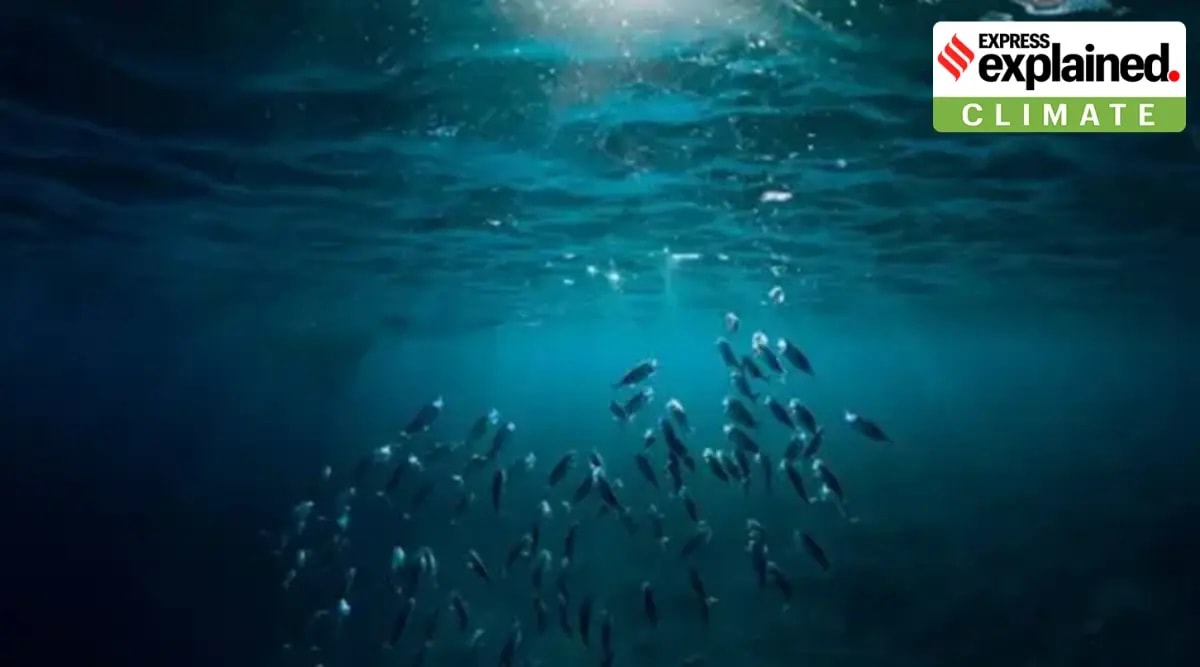Explained: Can green technology hurt marine biodiversity?
The researchers argue that the growing demand for renewable energy technology, such as lithium batteries for electric cars, also pose a potential threat to marine ecology.
 The study, published in the journal Nature Ecology and Evolution on July 7, also speaks about the negative impacts of green technology adoption that must not be ignored. (File)
The study, published in the journal Nature Ecology and Evolution on July 7, also speaks about the negative impacts of green technology adoption that must not be ignored. (File)A new study has flagged emerging threats that could have a major impact on marine biodiversity over the next 5-10 years.
The study, published in the journal Nature Ecology and Evolution on July 7, also speaks about the negative impacts of green technology adoption that must not be ignored. A technique called ‘horizon scanning’ was used by a team of 30 multidisciplinary experts to arrive at their conclusions.
Green technology impact
With increased public pressure against marine plastic pollution, there has been an attempt to replace fossil fuel-based plastic with biodegradable polymers, such the ‘biodegradable plastic bags’ made of plant starches. However, the researchers claim that these materials do not biodegrade under natural conditions in the ocean and their widespread adoption can cause marine litter as well. Since their long term impact on the environment remains unknown, they can lead to a fresh set of problems.
The researchers argue that the growing demand for renewable energy technology, such as lithium batteries for electric cars, also pose a potential threat to marine ecology.
Deep sea ‘brine pools’ of more saline water, contain higher concentrations of lithium and could become future sites for extraction. The study finds that these ecosystems support diverse species, many of which are largely undiscovered. A rising demand for lithium-powered electric vehicles could put these environments at risk.
Other challenges
Overfishing has already been recognised as an immediate problem, with the WTO calling for the prohibition of subsidies towards those engaging in fishing of overfished stocks, in its last Ministerial Conference on June 23.
The authors project a greater amount of fishing in deeper sea water, in order to address growing concerns of global food security.
There are around 10 billion tonnes of small lanternfishes in the mesopelagic zone (a depth of 200m – 1,000m), which are not fit for human consumption but can be sold as food to fish farms, or be used as fertiliser.
However, the large-scale harvesting of mesopelagic fish would cause immense environmental damage, because these species act as an ocean pump and remove carbon from the atmosphere.
Horizon scanning
It is a technique which seeks to identify novel but poorly known issues that are likely to become important consequences over the next decade.
The researchers of the study argue that this methodology is meant to “primarily act as signposts, putting focus on particular issues and providing support for researchers and practitioners to seek investment in these areas” before they have a major impact.
It is also an effective way of assembling experts from diverse subject areas to examine common issues and formulate more comprehensive solutions.
The horizon scan method has been previously used to identify issues that are now known to have universal environmental impact. A scan from 2009 gave an early warning about the danger that microplastics (tiny plastic debris smaller than 5 mm) pose to marine environments. Since then, countries such as the US and UK have banned cosmetics from containing microbeads.
- 01
- 02
- 03
- 04
- 05






































